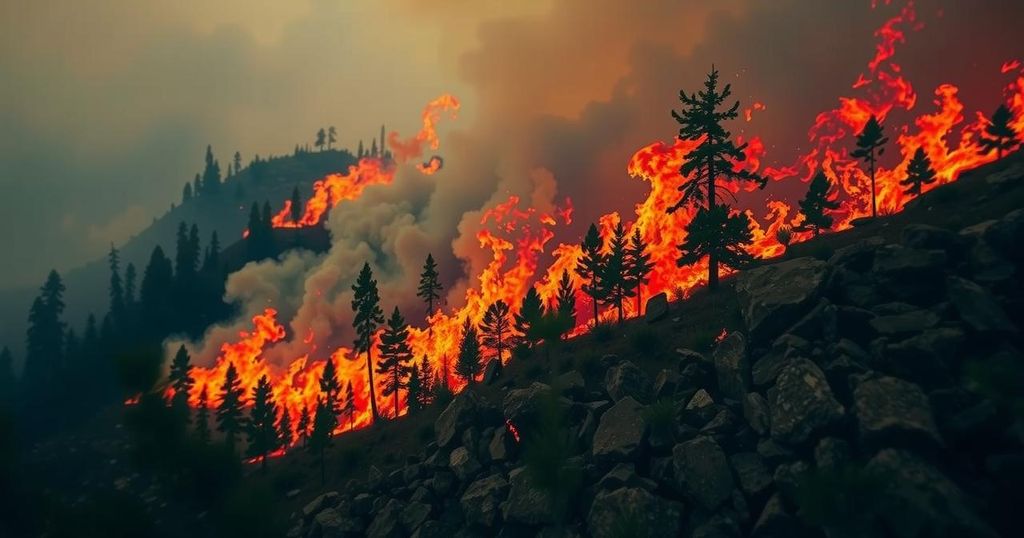The Escalating Threat of Wildfires: Climate Change and Human Health

Research has conclusively linked climate change to a rise in the frequency and intensity of wildfires globally, resulting in an alarming increase in smoke-related deaths. Studies indicate that while certain regions have seen a decrease in wildfires due to human activity, others, particularly forested areas, have experienced a significant uptick. The evidence underscores a dire need for immediate action to mitigate climate change’s impact on wildfires.
Recent research has established a stark connection between climate change and the escalating frequency and intensity of wildfires worldwide. This phenomenon has not only led to increased ecological damage but has also contributed to a significant rise in smoke-related fatalities over recent decades. Two research teams, collaborating across institutions in Dalhousie University, Belgium, the UK, and Japan, meticulously examined wildfires and their ramifications on public health, discovering detrimental trends for both. They noted a startling rise in wildfire smoke-related deaths, from fewer than 669 annually in the 1960s to approximately 12,566 each year by the 2010s. In their study published in Nature Climate Change, the teams compared wildfire models considering the impacts of climate change versus those that did not. Their findings indicated an increase in wildfires across numerous regions, particularly in delicate ecosystems like African savannas, Australia, and Siberia. Notably, the scope of wildfires exhibits significant regional variations. In Africa, which accounts for up to 70 percent of the global burned area, there has been a noticeable decline in wildfires, attributed primarily to human activities and land fragmentation that inhibit fire spread. In stark contrast, forested regions like California and Siberia are witnessing an uptick in wildfire incidents, driven by prolonged droughts and elevated temperatures linked to climate change. Dr. Sian Kou-Giesbrecht, an associate professor at Dalhousie’s Department of Earth and Environmental Sciences, who is also a co-author of both studies, emphasized the importance of these findings: “The study is important because it shows and quantifies the influence of climate change on increasing wildfires worldwide, especially given the impacts of wildfire on society and its feedback to climate change.”
The increasing threat of wildfires has emerged as a significant global concern, particularly in the context of climate change. Intense fires have serious repercussions not only for the environment but also for public health. Scientific research has aimed to dissect the factors contributing to this trend, highlighting the role of climate change in exacerbating the conditions that lead to wildfires. The recent studies released indicate a direct correlation between climate change and the surge in both the incidence and severity of wildfires, thus necessitating urgent public policy responses to mitigate these risks.
In conclusion, the troubling prominence of wildfires, exacerbated by climate change, poses grave risks to both human lives and ecosystems. The research indicates a stark increase in smoke-related fatalities and highlights regional discrepancies in wildfire prevalence. While human interventions can modestly diminish some impacts, the overarching influence of climate change is undeniable, necessitating immediate action to reduce greenhouse gas emissions and improve fire management strategies. Without such measures, the trend of increasing wildfires and associated health impacts is likely to continue markedly into the future.
Original Source: www.dal.ca






